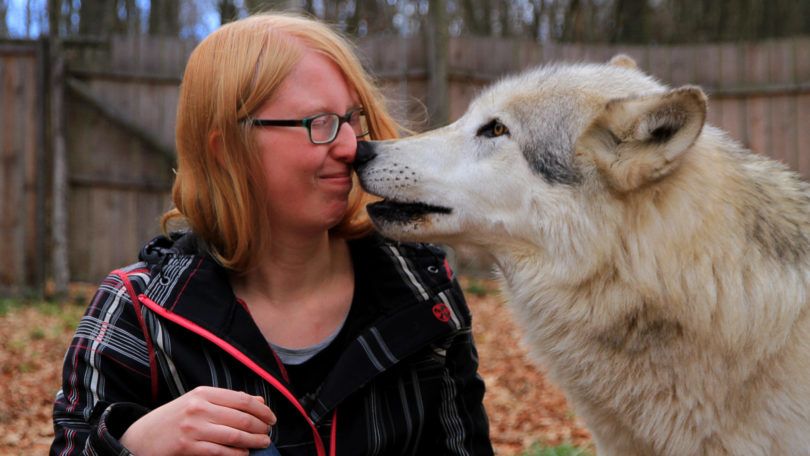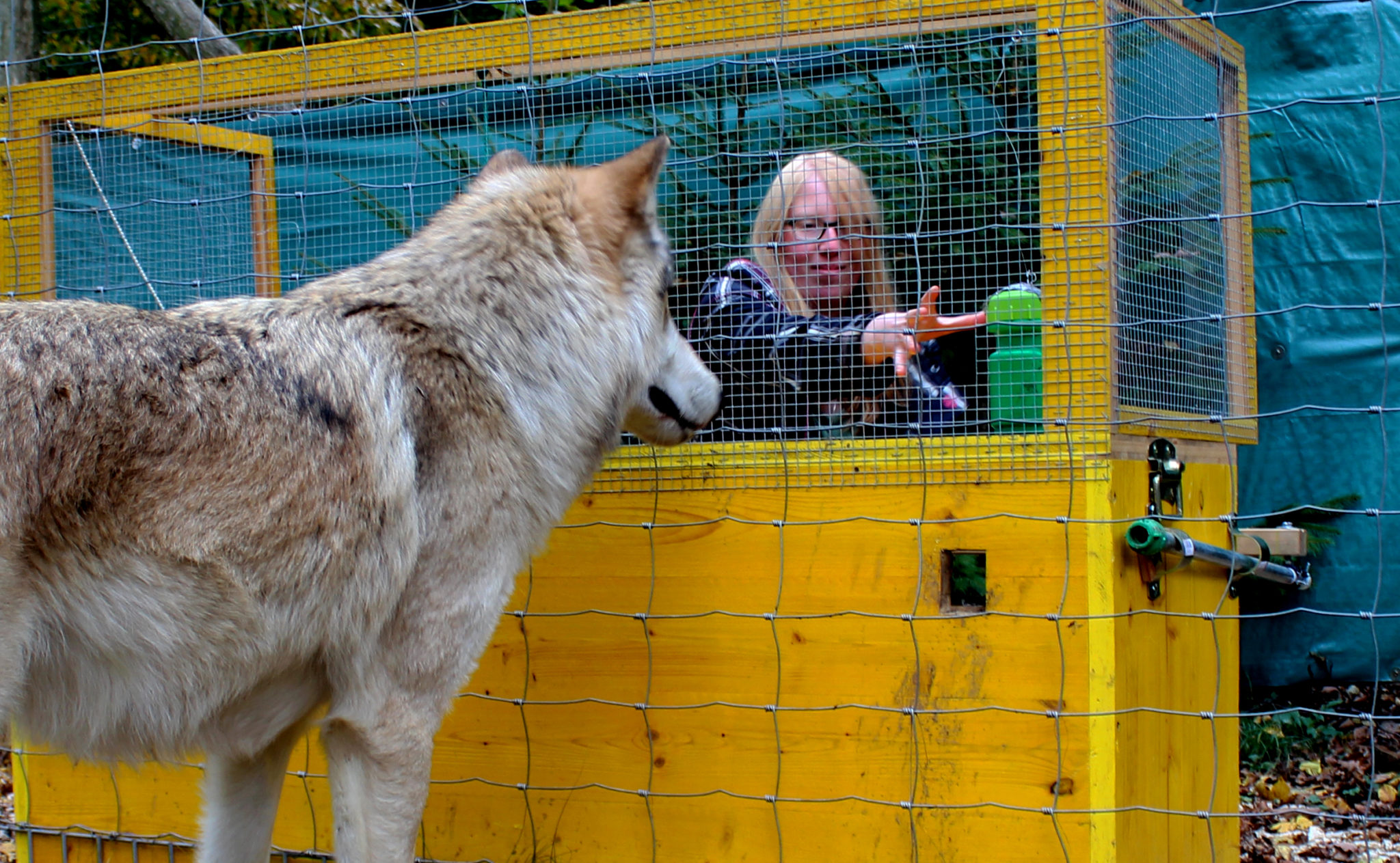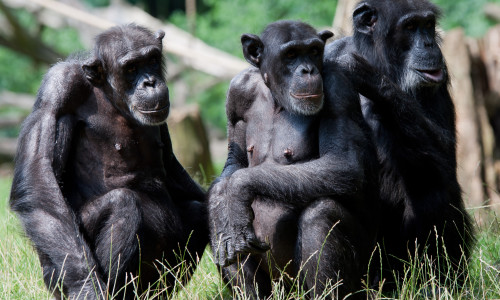Nine months amongst wolves
-
 Michelle Lampe with Amarok. Photo: Caroline Haas, Wolf Science Center
Michelle Lampe with Amarok. Photo: Caroline Haas, Wolf Science Center
Michelle Lampe has had a fascination for wolves her whole life. Because of that, she was very happy that she could do a biology internship at the Wolf Science Center in Austria. On top of that, she published a research article about this last Friday. This is special, because she is first author, even though she only graduated from university a few weeks ago.
What’s so fascinating about wolves? They have the image of ‘big bad wolf’, but at the same time they are super social, says Michelle Lampe (24). In the wild, they live in flocks.
‘Wolves are shy. Often they are more scared of you than you are of them’
For as long as she can remember, Lampe has ‘something’ with wolves (‘I am also a dog person’). She must have been about 8 years old when she first saw one in the zoo, she thinks out loud. When she was looking for a place to do her master internship, the Biology student did not waste any time and contacted the Wolf Science Center in Austria. She was welcome and stayed amongst wolves for nine months.
Instructions
‘I studied the capability of wolves and dogs to follow instructions from humans’, she says. That went like this: in the research center, Lampe built a setup; a kind of table with two water bottles on it. One contained a treat, the other didn’t. Lampe gave the wolves instructions by looking at the water bottle with the hidden food, after which the wolves had to choose between the two objects. Did the wolf understand it? As it turns out, it did.
In the next experiment, she crawled under the table herself, so that the animals could not see her. She had attached a piece of string to the water bottles, which she could pull. The bottle with the food made noise when it moved. Was the wolf able to make the connection between noise and food? Yes, he was also able to do that. And this is where it gets interesting. Because, says Lampe, dogs cannot do that. Even though dogs descend from wolves. Her conclusion is that dogs have lost that skill in the process of domestication.
‘What surprised me was that wolves are just as capable as dogs to react to human communication’, she says. ‘You would think: a dog has adjusted to a life with people and because of that, it understands us better. But because a wolf can do that just as well, it is possible to imagine that a wolf can be domesticated just as easily as a dog.’
Publication
Her conclusions are now incorporated in a scientific article that will appear in the journal Scientific Reports. This is special, because Lampe is the first author, even though she graduated only a few weeks ago. ‘This is very good for me, because I want to continue doing research’, she says. ‘A publication like that looks good on your cv.’ For her follow-up research, she wants to continue studying animal behaviour. This does not necessarily have to include wolves.
With a little luck, there will be wolves in the wild again soon in the Netherlands; some have been seen near the border in Germany. ‘Good for our eco system’, says Lampe. ‘Since the wolf went extinct, there have not been any big predators in the Netherlands anymore.’ We do not have to be afraid when the animal returns in our country. ‘Wolves are shy. Often they are more scared of you than you are of them.’




